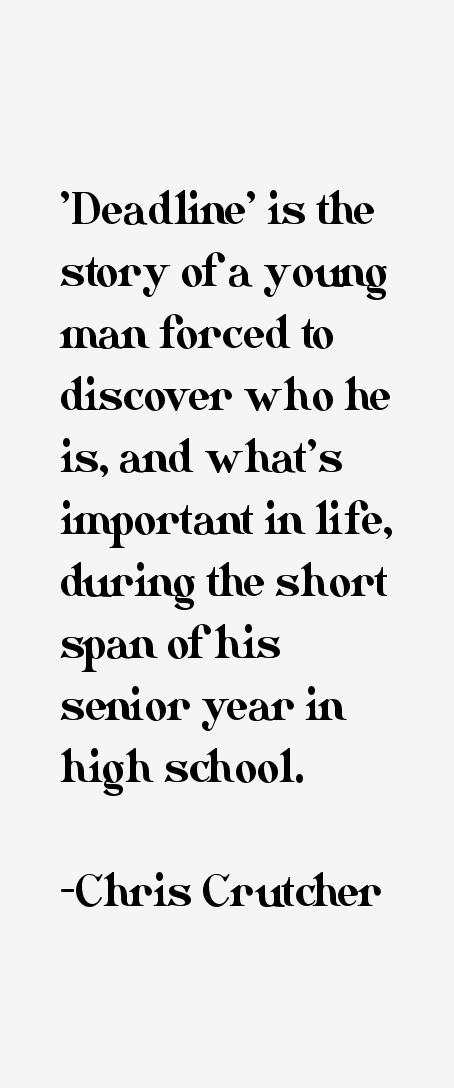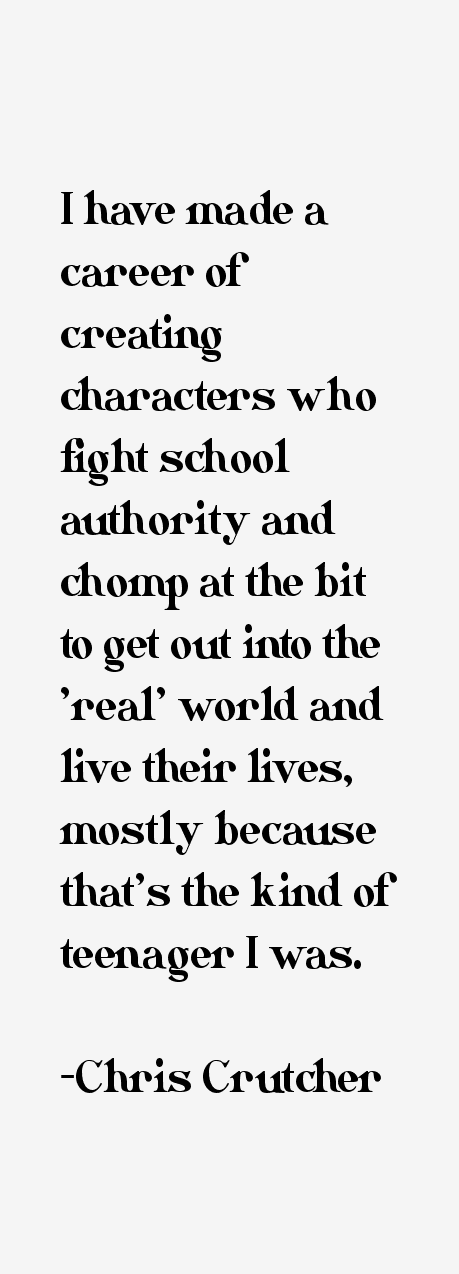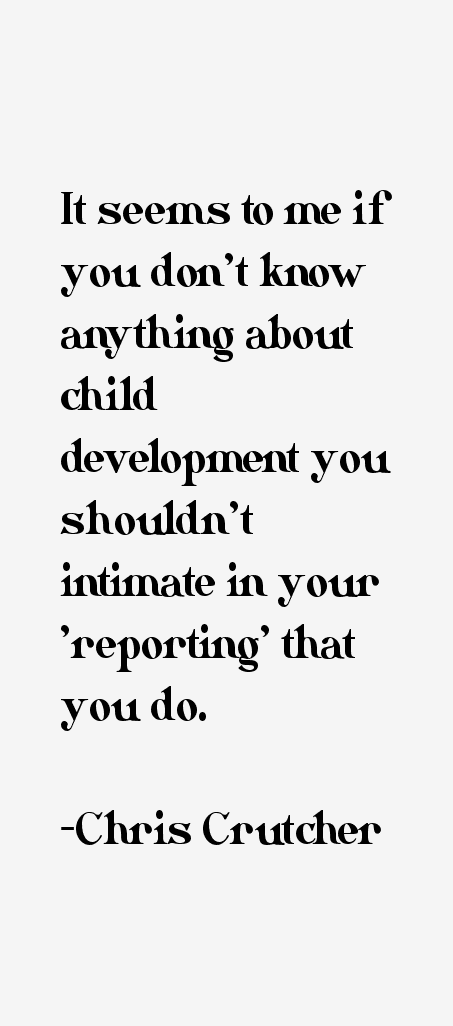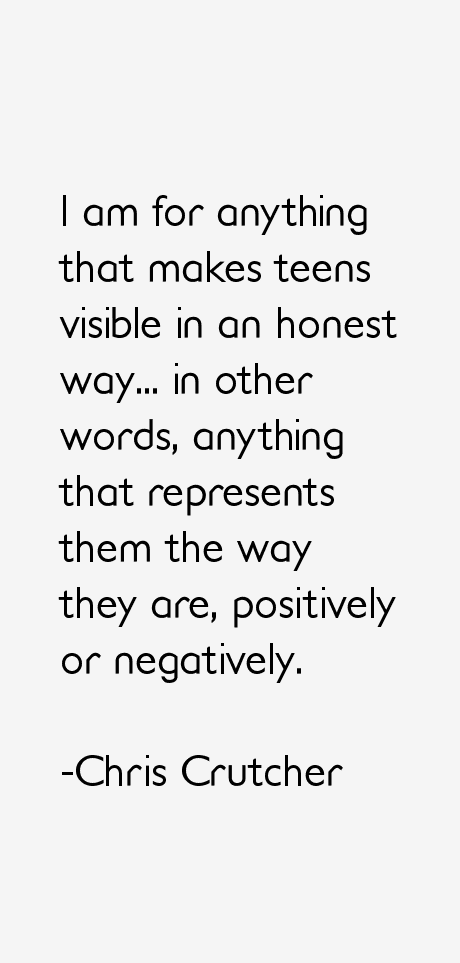Chris Crutcher Quotes & Sayings
13 most famous Chris Crutcher quotes and sayings (novelist). These are the first 10 quotes we have.
“I don't think I'll ever lose the feeling that I had when I read 'To Kill a Mockingbird' - Harper Lee was going back into her childhood. I grew up in a real small town - Lee's was in the South, mine the Northwest - but small towns have a lot in common. There was such a revelation in knowing that a story could be told like that.”

“'Deadline' is the story of a young man forced to discover who he is, and what's important in life, during the short span of his senior year in high school.”
“The premise of 'Deadline' forced me to go against my own grain with a character determined to find all that is valuable in that time. I believe this is a story about redemption; how, even with the best intentions, it's sometimes found and sometimes not.”

“I have made a career of creating characters who fight school authority and chomp at the bit to get out into the 'real' world and live their lives, mostly because that's the kind of teenager I was.”

“It seems to me if you don't know anything about child development you shouldn't intimate in your 'reporting' that you do.”
“Being an outsider means not being heard, not having a voice. It means being treated as a second-class citizen, being diminished in the eyes of others. We have all felt this way at one time or another, but some feel it more consistently. Unfortunately, our schools often do not embrace the talents of many of their occupants.”

“I am for anything that makes teens visible in an honest way... in other words, anything that represents them the way they are, positively or negatively.”

“Sometimes a book is better than it ever had a right to be because of the history the reader brings to the reading and because of the methods educators use to bring a particular story alive.”
“I think the value in books like mine, and a great number by other talented writers, is in the ability to bring dark subjects into the open where they are not so dark, where they can be talked about and considered by teens and adults alike.”
“Certainly working with teens keeps me up to date with language and with certain kinds of thinking. I often feel like I have to go back to that 17-year-old Chris Crutcher, and that forms the core voice. I can draw on teens from 1964 to 2001 to find a part of the voice I need.”
Chris Crutcher Quotes Rating
No Ratings Yet
Leave A Comment
























